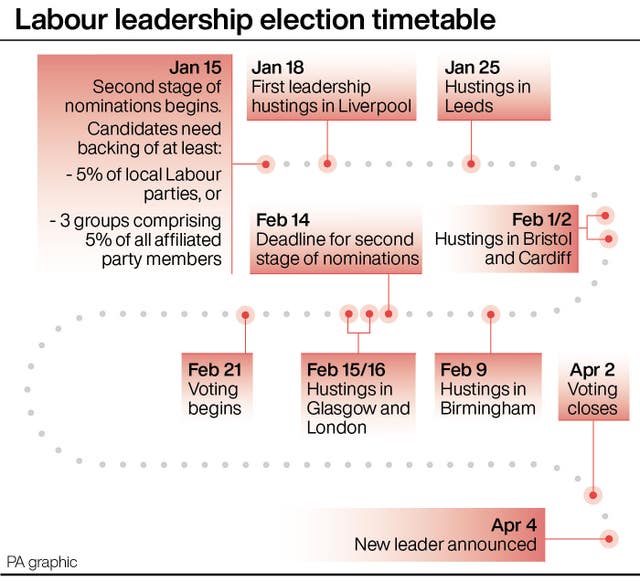
Labour leadership candidate Lisa Nandy has said free movement would have been a success if it was “married with real investment” in training Britain’s young people.
The Wigan MP said her constituents, who voted by 62% to Leave, did not oppose people coming from Europe to work but instead wanted the opportunity of working abroad to be available to them through better skills training.
In what will be seen as a bid to appeal to Labour’s left-wing membership, Ms Nandy confirmed she supported the party’s re-nationalisation plans and its manifesto pledge of abolishing university tuition fees.
During her interview on the BBC’s Andrew Neil Show, Ms Nandy defended the free movement of people from across the European Union.
“For too long too many people have felt, not just in Britain but across the EU, that free movement favours the skilled and the mobile at the expense of governments investing in the skills of young people in towns like mine,” she said.

“Nobody in Wigan resents the fact that we have people come across from the EU to take care of people in our local hospital and our care homes.
“But they do resent the fact that those skilled jobs aren’t available to them as well.”
She said free movement “married with real investment” would have “allayed concerns” in the run-up to the 2016 referendum.
It followed her comments made in an earlier speech at the RSA in London, where Ms Nandy said Labour should have been more prepared to defend free movement and its benefits.
“I believe in free movement,” she said on Wednesday.
“If it were paired with renewed and radical investment that enabled opportunities for young people, decent jobs, training and skills – then I know that those concerns about freedom of movement would have fallen away.”
But, in her BBC interview, she said the “battles” over free movement were “gone” now that Boris Johnson’s 80-seat majority meant he could take the UK out of the EU by January 31 and put a stop to the concept.
Ms Nandy had called for a compromise Brexit deal before the election but she said the leadership of the party “did not want to hear”. She voted for Mr Johnson’s deal.
The former shadow environment secretary defended voting against Theresa May’s Withdrawal Agreement three times, telling the BBC she had put her efforts into winning concessions to ensure MPs had more of a role in the trade negotiations with Brussels.
“I told Theresa May that if she brought a Bill before Parliament that gave a role for Parliament in the next stage of the negotiations, I would vote for it. I was consistent in that all the way through,” she said.
In a quick-fire question round, Ms Nandy said she supported re-nationalising Royal Mail and scrapping tuition fees but added: “In the language of priorities, where I would start is restoring the education maintenance allowance and university grants.”
The backbencher said she would renew Trident, Britain’s nuclear deterrent, as long as it was “coupled” with a multilateral disarmament pledge.
The 40-year-old said she was opposed to any “incredibly damaging” privatisation of the NHS.

The five leadership hopefuls are trying to win the support of affiliates such as unions and constituency Labour parties as the second stage of nominations opened on Wednesday.
In order to progress to the postal ballot of members and supporters, candidates must get the support of 5% of local parties or three affiliates, including two unions, by February 14.
Ms Nandy won the support of the National Union of Mineworkers, while Sir Keir Starmer has been backed by Unison and SERA, which is the only environmental group affiliated to the party.
Both progressed to the current stage – along with Rebecca Long-Bailey, Jess Phillips and Emily Thornberry – after winning enough support from Labour MPs and MEPs.
The successor to Mr Corbyn, who led Labour to its worst general election defeat since 1935, will be announced on April 4 after members and other supporters cast their votes.


Comments: Our rules
We want our comments to be a lively and valuable part of our community - a place where readers can debate and engage with the most important local issues. The ability to comment on our stories is a privilege, not a right, however, and that privilege may be withdrawn if it is abused or misused.
Please report any comments that break our rules.
Read the rules here